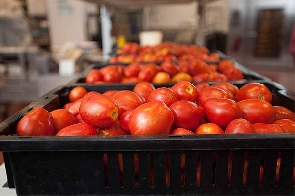Scientists have found a new technology to extend shelf life and improve storage in food crops especially perishable vegetables like tomatoes, cabbage, carrot, and peppers.
It will reduce pre-and post-harvest losses while conveying crops from farm to storage and market.
The technology, called Genome Editing (GEd) when embraced, will also reduce incidence of traces of pesticide on vegetables and farmer’s cost of buying agro chemicals. GEd refers to techniques in which the genetic material is inserted, altered, replaced, or deleted in the genome of a living organism at predetermined locations.
These techniques are being used in crops such as rice, tomato, maize, sugarcane, soybean, and potato to control pest and disease resistance, higher resilience to abiotic stress, higher nutrient, and increased yield potential.
In animals such as poultry, sheep, goat, cattle and pigs for increased disease resistance, better adaptation to farming or environmental conditions and enhanced animal welfare.
Mr Samuel Edudzi Timpo, Head of AUDA-NEPAD’s Flagship Biosafety Programme who disclosed this to Ghana News Agency in Accra noted that the new technology is seeking to identify challenges in a crop and animals and address it.
Mr Timpo explained that “for instance, if farmers have a problem with pest in the core of the cabbage and spraying is unable to drive the pest out losing the crops GEd technology is used to build resistance to that pest in a safety manner to avoid agro chemical, which it over sues coils pose danger to consumers.”
He said some of the GEd techniques were less expensive compared to others existing ones and that public institutions that were not too well resourced to pursue research could actively participate in harnessing the potential of the technology.
“With some other technologies, it could cost $135 million to identify and solve a problem in a crop but with GEd technology some of its techniques require only 10 dollars,” he added.
Ms Florence Nazare, Ag Director Knowledge Management, AUDA-NEPAD said, from the African Union perspective, there had been decisive efforts by leaders to ensure that the continent was driven by science and technology innovation through harnessing new and emerging technologies to produce food sustainably.
She noted that GEd was one of the new techniques that promises to enhance productivity, facilitate the agro base trade among member states under the continental free trade area, access to food, create jobs and improve the livelihoods of the people.
“Regional integration is a core of Africa development because most Africa economies are small, and they will need to link up at that to propel development. By that it will dynamize the value chain, ensuring access to food and nutrition in a safe and sustainable way,” she said.
Ms Nazare citing an example said, “If a particular crop triggers an allergic reaction in someone, for instance GEd technology does three things thus to mute an unwanted gene, deleting it outrightly or toning it down to suppress the level. This will help deal with the allergy.”
Dr Seth Awuku Manteaw, the Director, CSRI-Institute for Scientific and Technological Information, said harnessing new and emerging technology was in line with Ghana’s policies and laws including the Science, Technology and Innovation Policy and Medium-Term Expenditure Framework. He said the CSIR, and all the 13 institutes had laboratory facilities but needed some investment from both the government and private sector to upgrade as well as train scientists to advance the GEd technology.
Dr Manteaw said there was a strong correlation between investment in sustained investment in science, technology and innovation and economic prosperity. He stated that due to the negative effect of climate change, expensive cost of conventional breeding, and increase in the country’s population had necessitated the need to harness GEd techniques to enhance food production.
“This is a technology which is safe and healthy. No foreign substance is introduced into the crop and the technique is done under strict regulation. Rather, it addresses a problem at the basic level,” he said.
Business News of Sunday, 25 June 2023
Source: GNA













